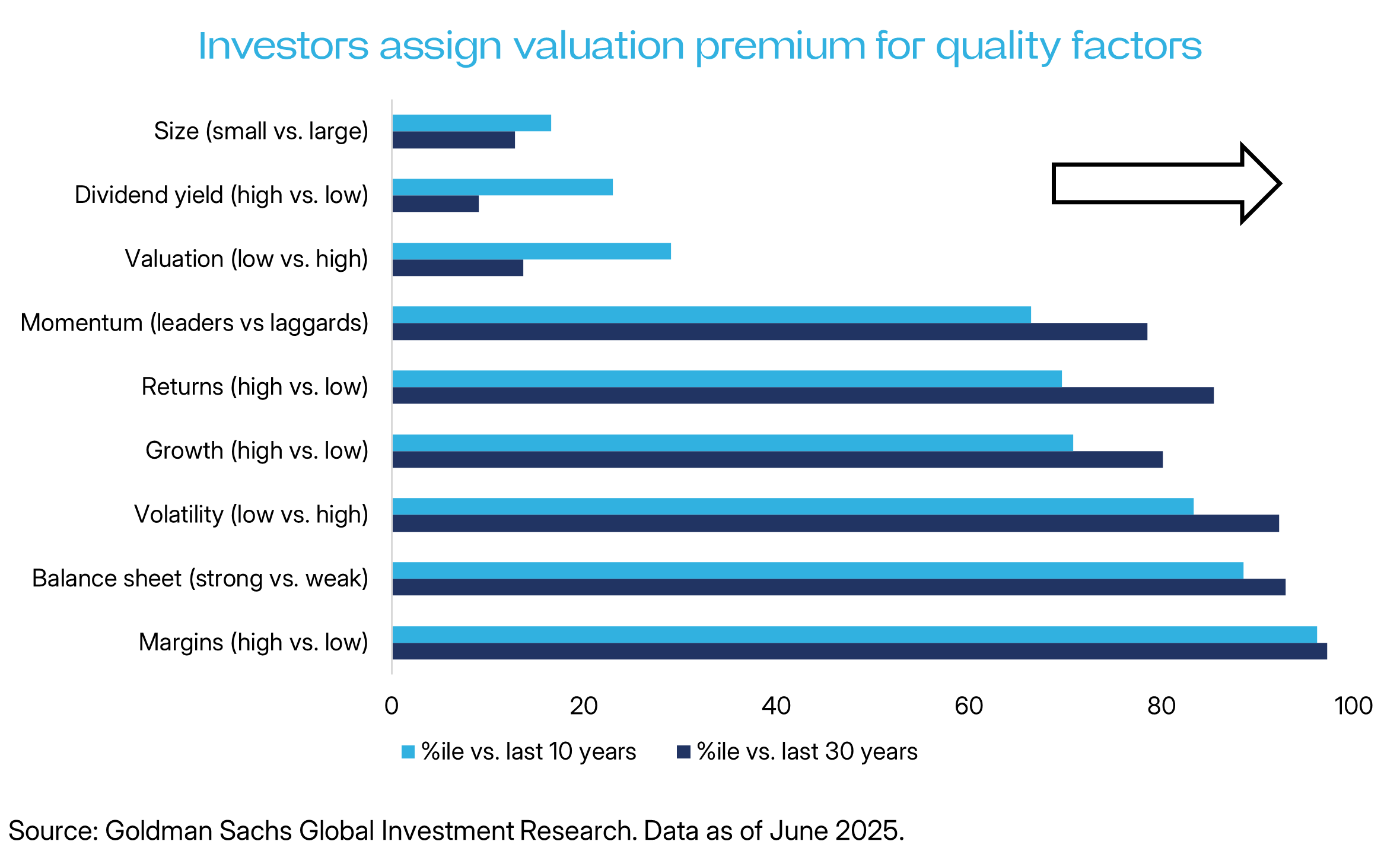Costco: a tech stock disguised as a supermarket?
Costco (NASDAQ: COST) is not what comes to mind when you picture a Nasdaq heavyweight. It sells toilet paper, not AI chips. And yet, its total return over the past five years has eclipsed Amazon, Microsoft, and Alphabet, making it a top contributor to the Nasdaq 100.

Why? Because behind its grey warehouses and $2 hot dogs lies a business model that functions less like a supermarket and more like a tech company. Wall St has recognised this, and it’s why the stock commands a valuation that makes its retail peers blush.
The SaaS model in aisle four
The distinction of Costco isn’t what it sells, but how it sells. Unlike supermarkets living on merchandise markups, Costco sells goods near breakeven. Its profits come from its annual membership fee (starting at US$60).
In FY2024, these fees delivered US$4.8 billion in revenue, accounting for roughly 55% of the company's pre-tax earnings. This creates a predictable, annuity-like cash stream that is remarkably stable. With a global member renewal rate over 92%, Costco’s customer retention is similar to Netflix (NASDAQ: NFLX) and Microsoft 365 (NASDAQ: MSFT).

This loyalty is earned without a marketing budget. Unlike Aldi, Woolworths, or JB Hi-Fi, Costco does not advertise. Its value proposition—high-quality, low prices—is its only marketing. Reflecting its customers loyalty, the r/Costco sub-Reddit has 1.3 million members – no other global supermarket comes close.
Driving a lot of retention is Kirkland Signature, Costco’s private label. Kirkland was created to offer lower priced alternatives to well-known national brands that don’t skimp on price. Now accounting for nearly a third of total sales, Kirkland has become a reason people shop at Costco. In the tech world, Kirkland is what gets called “anchor content”: the hook that keeps users locked into the ecosystem.
Simplicity is more scalable
The key economic insight behind Costco’s business model is that simplicity is more scalable. Costco stocks just 4,000 items: a fraction of the 30,000 items stocked by Coles or Woolworths. Stocking fewer items simplifies logistics, makes inventory management easier, and creates operating leverage.
The results are evident in its retail efficiency metrics:
- Sales per square foot: Costco generates over US$2,000 per square foot, dwarfing Walmart (~US$600) and Target (~US$450).
- Sales per employee: At over US$800,000, this figure is more than triple that of most retail competitors.
Despite razor-thin 11% gross margins, this efficiency has allowed net income to compound at over 12% annually for the past decade, with return on equity consistently above 25%.
The premium and why it is justified
Costco trades at around 47x forward earnings—a steep premium to the consumer staples sector average (~20x) and the S&P 500 average (~24x). But those looking to buy Costco on a PE ratio at or below market averages are going to be disappointed. Costco has always commanded an above-average multiple, and we believe it always will. Why?

1. High probability revenue growth lowers Costco’s discount rate.
Costco has grown its revenue (year over year) in every single quarter since IPO with one exception: 3Q of 2009, due to the GFC. And even here it was arguably due to lower oil prices rather than lower unit sales as such. (Cheap petrol is a big part of Costco).
As markets are forward-looking and risk averse, revenue growth that is a near-certainty gets priced into Costco as a valuation premium.
2. Earnings stability lowers Costco’s discount rate further.
Wall St prefers business models that are centred around some kind of annuity, rather than lumpy seasonal sales. Annuities make cash flows more predictable and lowers risk. As discussed above, Costco’s membership fees are responsible for most of its earnings. This puts its in a different bucket to its sector peer group (like Walmart or Target), and gets reflected in its price.
3. Flight to quality trades.
Quality companies are increasingly commanding a valuation premium, according to research from Goldman Sachs. There is no agreed definition of a ‘quality’ company. But Costo – which carries little debt, ultra-reliable revenue growth, and has low beta to the share market – fits most definitions of quality.

About ETF Shares
ETF Shares is a low-cost index ETF issuer, based out of Macquarie University. Our ETFS Magnificent 7+ ETF (CBOE: HUGE) takes the largest position on Costco of any Australian ETF.
2 topics
4 stocks mentioned
1 fund mentioned

